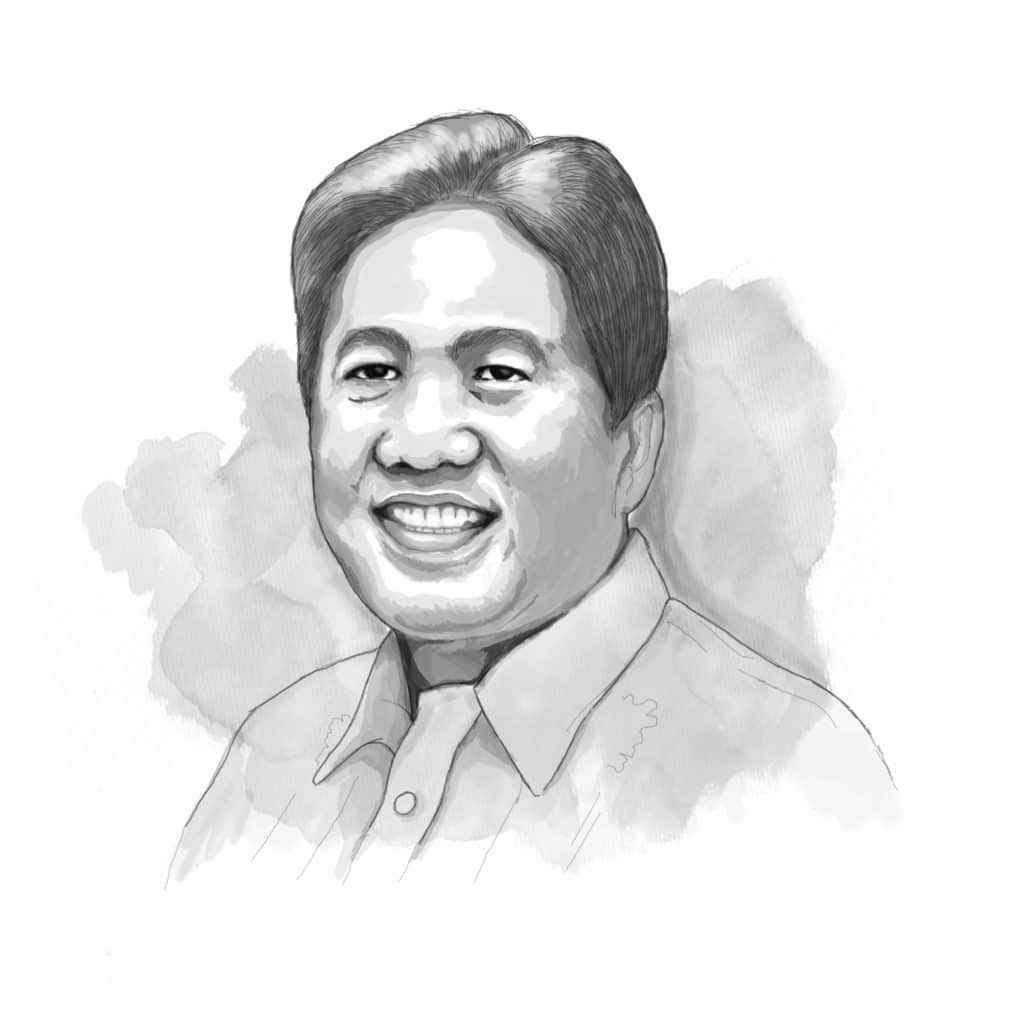ENDEAVOR

University of Santo Tomas students immersed themselves in a day-long sustainability forum as the Manila Bulletin brought its environment advocacy to their campus last Monday, Sept. 30. Last year’s forum was held at the University of the Philippines’ Diliman campus.
This year’s theme, Power and Real Estate in a Green-Centric Future, reflects the compelling sense of urgency behind attaining the ambitious goal set by the 2015 Paris Agreement to ensure that global warming is curbed such that ocean temperature rise is pegged at not more than 1.5 degrees centigrade. This bold initiative of the Climate Vulnerable Countries (CVC) forum veered away from the old norm of 2.0 degrees centigrade. The CVC meeting was held at Malacañan Palace before the convening of the Paris summit. The Philippines was the CVC lead country in 2015.
William Ti, Jr.’s keynote message provided an overview of social architecture which he equates with planning a better human environment. A master’s degree holder in urban design from the National University of Singapore, his firm, WTA Architecture and Design Studio focuses on large-scale development work involving housing projects, malls and condominiums.
On the scale of sustainability, he zooms in on the family, community and urban dimensions, specializing in projects that optimize the use of space. He pointed out that the leading metropolitan areas of the world such as New York, Tokyo and Singapore, have the highest density. He also observed the phenomenon of vanishing shores brought on by commercial tourism and urban expansion
He is a strong advocate of social architecture that promotes a humanism and social relevance. According to his website: “As a firm believer in sustainable planning and the advantages of urban living, he tries to imagine a better-curated more design-focused society where beautiful things and pleasant environments are ubiquitous, even in the densest city centers.”
Oliver Chan, senior vice president and chief sustainability officer of Arthaland also cited the need to ensure that by 2030, the imperative to stem the tide of global warming is achieved. He cited his firm’s pioneering efforts to broaden the market for sustainability through the Science Based Target Initiative program, as well as its support for the UN ESCAP Sustainable Network Program.
This has enabled the firm to attain 54 percent water efficiency, 59 percent power savings, and a 63 percent renewable energy mix in all its projects. He also beamed the spotlight on the Sevina Park low -carbon, bamboo-built retail complex built with zero steel and zero concrete as a trail-blazing initiative. Arthaland has also partnered with National University for a masterclass architecture program.
Ronald Francis Suarez, Aboitiz Power’s vice president for corporate affairs, spoke on Navigating the Energy Transition: A Bespoke Path.
He pointed out that the Philippines has the lowest per capita energy consumption, at 18 giga-joules per capita versus the global average of 76 giga-joules per capita; 113th out of 196 countries surveyed. The PH figure is one-fifteenth of the US per capita energy consumption which reflects the wide gap. These figures help explain the country’s low Human Development Index that is an offshoot, too, of its low GDP per capita.
Aboitiz Power’s aim is to achieve 9,200 megawatts in total generation capacity, including a threefold renewable energy growth by 2030.
Pilipinas Shell’s Nate de Jesus affirmed his company’s commitment to abide by three key principles of the circular economy, namely: first, eliminate waste and pollution; second, circulate products and materials at their highest value; and third, regenerate nature. It has reduced its sale of emission products and implemented plastic recovery programs.
Shell’s NXplorers program “believes in empowering and equipping the future generations of professionals and leaders with tools and skills for the jobs of tomorrow” by applying three methodologies, namely: systems thinking, scenario planning, and theory of change. Explore, create, and change are the three watchwords that impel young participants to craft specific initiatives that enable them to fulfill their aspirations for a better world.
Another program, Shell Livewire, links micro, small and medium enterprises (MSMEs) to the value chains that would enable them to propagate their products and services.
Cleofe Albiso of Megaworld Hotels and Resorts presented their unique program on promoting the use of sampaguita, the national flower, as a distinctive identity peg for healthy nutrition, as well as for personalized service, the Filipino way. This is based on a “circle of love for God, work and community” that affirms love of self and family, honor, dignity and healing.
Capping the forum’s overview phase, Makati Mayor Abby Binay shared her experience in governance. In August 2022, she declared a climate emergency in her city and urged a whole-of-society approach to combat climate change. She called attention to the inexorable march toward breaching the 1.5 degree centigrade benchmark set in Paris in 2015. She called attention to the dangers posed to low-lying areas in cities like Makati “that bring floods and landslides, disrupt public services, and displace families and even entire communities.”
Since then, Mayor Abby said, Makati has stepped up its initiatives to further reduce greenhouse gas emissions that include “plans to procure an entire fleet of electric vehicles for the city government and using solar panels in public schools and government offices to minimize energy consumption and ensure continuity of services during calamities.”
She underlined the importance of enlisting the active involvement of the business sector, communities, and other stakeholders: “Now is a crucial time to act, and we need to act fast. We need thinkers, doers, and movers,” she said.
Reflecting on what I had heard at UST earlier this week, I have realized the importance of setting ambitious goals and persevering to see these through. It has been nine full years from the crafting of the Manila declaration in Malacañan leading to the Paris agreement in 2015.
Indeed, we all need to think beyond our own lifetimes, acting in unison to preserve Planet Earth.